
How are you doing in this time? My experience is that it’s weird, and wild, and wonderful in certain ways, and really, really challenging in others. Grief, loss, uncertainty. Inspiration, creativity, a feeling of a “pause” that is ongoing. These are some of the things I’ve been feeling, and I’m hearing from many people who are experiencing similar energies and emotions.
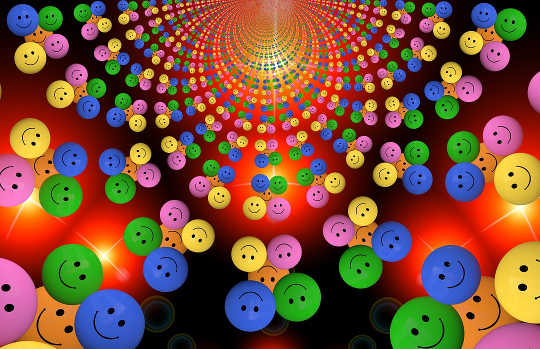
By nature, we are 5th dimensional humans. This has been encoded in our DNA. 5D humans live from their heart’s wisdom. They feel fully empowered and emit unconditional love and non-judgment for themselves and all others.
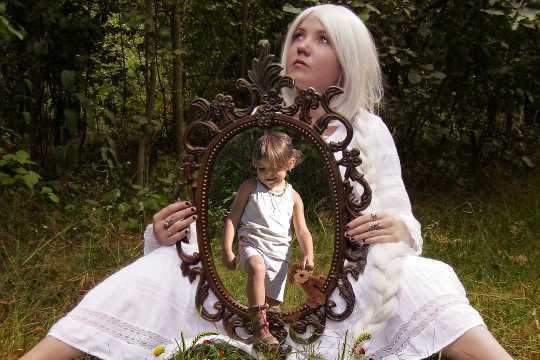
We need to examine the spells that hypnotize us and break them when they hinder us. Spells are words, deeds and judgements that go unquestioned, undigested and unchallenged. It could be a doctor informing you that you have three months to live, a friend saying your marriage won’t work, your mind telling you that...
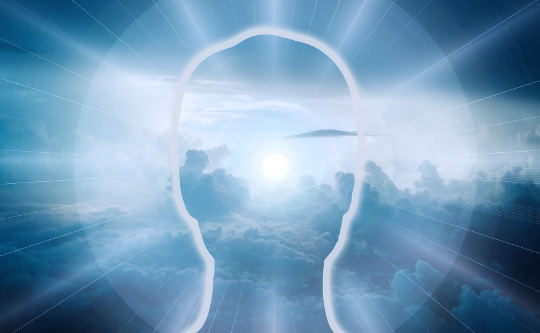
Nothing can happen without the power to make it happen, and if you and I are to work at living more abundantly and soulfully, we will need not only a lot of love, determination and psychological maturity, but also a lot of power. Indeed, having power is very important and it serves as a central gateway that can potentially...
- By Luciano Kay
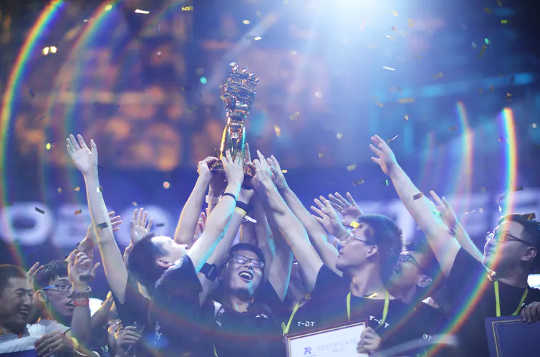
Innovation is a critical part of tackling problems in areas as diverse as transportation, housing, public health and energy.

Before March of 2020, few probably thought disease could be a significant driver of human history.

Each soul incarnated into a specific form on earth for a unique purpose. Your journey is now and exists at this moment, whether you realize it or not. It will be more enjoyable if you consciously pursue your spiritual purpose to bring the world to Love. Consciously following your spiritual purpose brings you ultimate...
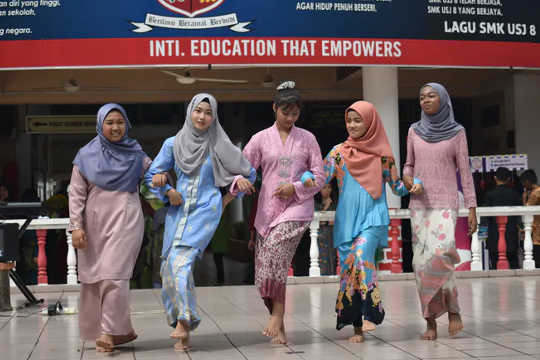
On Erin Gruwell’s first day as a high school English teacher, she faced a classroom of 150 “at risk” freshmen. Most of these kids, statistically, were going to fail. They were tough, their young lives already defined by poverty, gangs, violence and low expectations.

Traditional dancers celebrate Hari Raya, the end of Ramadan. Photo by Aniq Danial for Unsplash, CC BY-ND
On Erin Gruwell’s first day as a high school English teacher, she faced a classroom of 150 “at risk” freshmen. Most of these kids, statistically, were going to fail. They were tough, their young lives already defined by poverty, gangs, violence and low expectations. These students, she wrote, knew nearly every “four-letter word” except one: hope.
Yet four years later, every one of her “at risk” students at Wilson High School in Long Beach, CA, had graduated from high school. More than half went on to graduate from college. The stories written by Gruwell’s students were published as a book called “The Freedom Writers Diary”. It became a New York Times bestseller and in 2007 was made into a major motion picture called “Freedom Writers” starring Hilary Swank.
 Graduation carries many messages of hope. Photo by Marleena Garris for Unsplash., CC BY-ND
Graduation carries many messages of hope. Photo by Marleena Garris for Unsplash., CC BY-ND
Gruwell taught English but also taught them an elusive trait: hope. Science has, in the past 30 years, documented that hope can serve as a strategy for success.
Teaching hope
Although hope is a common theme in mythology, philosophy and theology, it wasn’t a subject of psychological research until University of Kansas psychologist Richard Snyder began his pioneering study in the 1990s. His work paved the way for science to measure, teach and distinguish hope from other psychological disciplines. His research recognized hope as a cognitive function, an emotional state accompanied by action.
Goals are basic to human behavior, Snyder noted, whether they are long- or short-term. They are the first step in imagining future achievement. Being successful, he writes, requires a way to pursue a goal and the will not give up – will power and way power. Snyder and social scientist Shane Lopez confirmed that hope can be taught and learned and that it provides benefits in the public sphere.
What kids need to excel
I am a professor of practice and clinical director for Arizona State University’s Center for the Advanced Study and Practice of Hope. The center’s team is made up of researchers, practitioners and graduate students who are advancing the understanding, strategy and practice of hope.
Other academic institutions including the University of Oklahoma’s Hope Research Center are committing resources to better understand the dynamics of hope. In 2014, the John Templeton Foundation funded The Hope and Optimism initiative, a $4.5 million, four-year grant at Notre Dame and Cornell. The project explored hope from various lenses including religion, medicine, sociology and psychology.
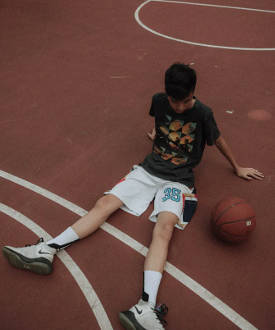 Kids thrive with an adult in their court. Photos by Kevin Laminto for Unsplash., CC BY-ND
Kids thrive with an adult in their court. Photos by Kevin Laminto for Unsplash., CC BY-ND
There is a new generation of hope scientists emerging on university campuses around the globe dedicated to further unraveling hope’s potential. These research topics include coping skills, depression, aging, social justice and creating communities of hope.
It is my long-standing belief that society often defines children and their future by disproportionately identifying and focusing on risk and trauma but ignoring hope.
Applying hope to life
To better understand how hope theory could be translated into practice, in 1993 I enlisted a group of seven researchers, practitioners and graduate students to participate in a seven-year literature review. In 2000, our team shared its conclusions, launching a new initiative called Kids at Hope. The Kids at Hope strategy, at its core, promotes the practices and belief that all kids are capable of success – no exceptions.
These findings informed the design of a framework that teaches hope as a cognitive skill. Teaching hopefulness begins by believing in all kids, connecting with young people in meaningful ways and teaching children how to imagine their goals, a process called mental time travel, that encourages the brain to plan for future opportunities and challenges.
The ability to mentally time travel is the process of remembering the past to draw from those memories and construct a future. Recalling past events is a great advantage in determining who and what to trust, and what works and what doesn’t. Through past experiences, people are able to picture where they would like to be and how to get there.
A central part of this work focuses on teaching the science of hope so that it can flourish in communities — whether that is the juvenile justice system, education, child welfare, behavioral health or youth development systems. The science is clear. Hopeful people are happier, healthier and achieve more of their goals than those who lack hope.
If it “takes a village to raise and educate a child,” I believe hope theory should be part of that strategy. As Gruwell and her students discovered, hope is a gift that can positively change lives.![]()
About the Author
Richard Miller, Professor of Practice, T. Denny Sanford School of Social and Family Dynamic, Arizona State University
This article is republished from The Conversation under a Creative Commons license. Read the original article.
Books on Improving Performance from Amazon's Best Sellers list
"Peak: Secrets from the New Science of Expertise"
by Anders Ericsson and Robert Pool
In this book, the authors draw on their research in the field of expertise to provide insights into how anyone can improve their performance in any area of life. The book offers practical strategies for developing skills and achieving mastery, with a focus on deliberate practice and feedback.
Click for more info or to order
"Atomic Habits: An Easy & Proven Way to Build Good Habits & Break Bad Ones"
by James Clear
This book offers practical strategies for building good habits and breaking bad ones, with a focus on small changes that can lead to big results. The book draws on scientific research and real-world examples to provide actionable advice for anyone looking to improve their habits and achieve success.
Click for more info or to order
"Mindset: The New Psychology of Success"
by Carol S. Dweck
In this book, Carol Dweck explores the concept of mindset and how it can impact our performance and success in life. The book offers insights into the difference between a fixed mindset and a growth mindset, and provides practical strategies for developing a growth mindset and achieving greater success.
Click for more info or to order
"The Power of Habit: Why We Do What We Do in Life and Business"
by Charles Duhigg
In this book, Charles Duhigg explores the science behind habit formation and how it can be used to improve our performance in all areas of life. The book offers practical strategies for developing good habits, breaking bad ones, and creating lasting change.
Click for more info or to order
"Smarter Faster Better: The Secrets of Being Productive in Life and Business"
by Charles Duhigg
In this book, Charles Duhigg explores the science of productivity and how it can be used to improve our performance in all areas of life. The book draws on real-world examples and research to provide practical advice for achieving greater productivity and success.
- By Jane Finkle

In the rapid-fire of the modern day workplace, teams with diverse perspectives can produce unique solutions to problems while generating fresh and creative ideas. This powerful perspective is often evident when introverts and extroverts work together in harmony appreciating the rich difference in style and energy.

Mechanical behaviors are old ways of doing things that once worked, or appeared to have worked, in situations that were stressful or in situations that were actual or perceived as potentially endangering your survival.
- By Wayne Muller
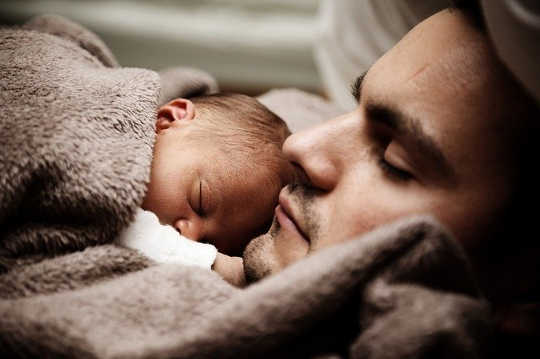
Our culture invariably supposes that action and accomplishment are better than rest, that doing something -- anything -- is better than doing nothing. Poisoned by this hypnotic belief that good things come only through unceasing determination and tireless effort, we can never truly rest.
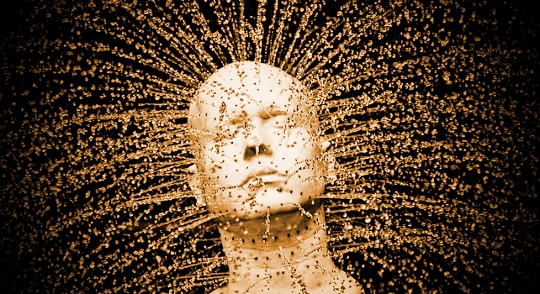
One of the biggest problems that people bring to therapy is not knowing what to do with a wide range of feelings, including sadness, anger, ecstasy, fear, and depression. Many visits to medical doctors are attempts to deal with feelings unable to be expressed or released. Such feeling problems are quite common.
- By Jean Walters
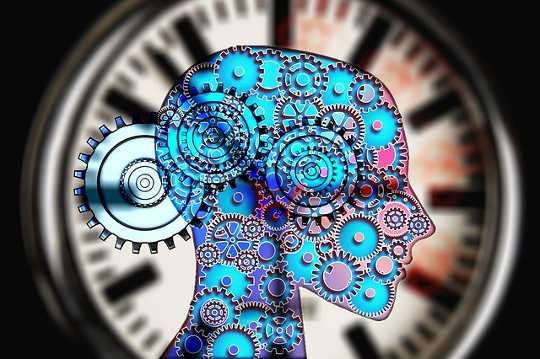
It is true that change is the only constant. You cannot stop it or interfere with it. It is ongoing and occurring every minute all the time. What you can do is learn to deal with it appropriately so that you are not creating anxiety around change. You can learn to flow with it.

Near our little house in the woods runs a lovely rushy stream, Clove Creek. While it’s often brisk and prosperous, it takes a huge spring thunderstorm to understand how such a modest flow could carve out the dramatic and beautiful area known locally as The Gorge.

If we accept that life is always trying to teach us exactly what we need to learn, we can view everything that happens to us as a gift. Even experiences that are uncomfortable or painful contain within them an important key to our healing, wholeness, and prosperity.
- By mc schraefel

COVID-19 has seen all the rules change when it comes to social engagement. Workplaces and schools have closed, gatherings have been banned, and the use of social media and other online tools has risen to bridge the gap.

If you have contradictory desire streams -- desires for two opposing things at the same time -- it becomes much more difficult for Nature to fulfill your desires. For example, you might think that you desire an ideal relationship, but if part of your brain is thinking, "Hah, you don't deserve that. It's never worked before.."
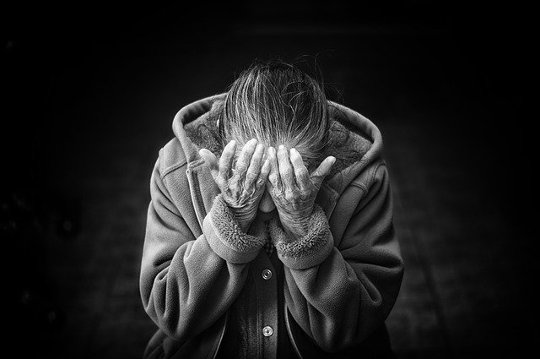
What do you want? This is a question that is asked of us throughout our lives. "What do you want?" We ask this question of babies when they are crying and we can't figure out if they're hungry, wet, or what… What do you want? We ask this question of the child who is seeking our attention. We ask this of a...
- By Rich Rahn
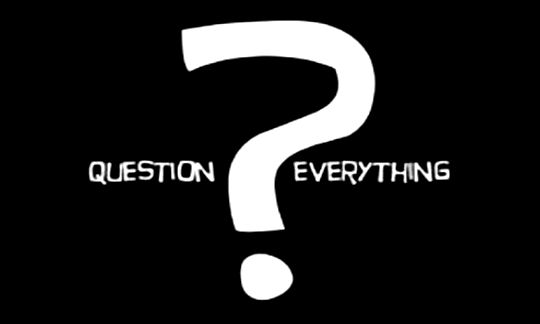
What are beliefs really? Beliefs are opinions, assumptions, prejudices, judgments, ideas, and attitudes through which everything you experience in life is filtered. They are the lenses through which we see the world.

Six months into this pandemic, changes are producing interesting conversations about the potential of an urban exodus to suburban, small-town and rural places, driven by changing perceptions and priorities.
- By Louise Hay

Affirmations are really anything that we say or think. We say, "I don't want this in my life" or "I don't want to be sick anymore" or "I hate my job".

The impact of the COVID-19 pandemic on U.S. employment is dire. Economists estimate that 1 in 5 workers have lost their jobs.
- By Alan Cohen

Sitting on an airplane in flight, I was listening to an inspiring audio seminar on my iPod. Then the in-flight movie came on. Since I was in a bulkhead seat and the projection screen was just a few feet from me at eye level, it was almost impossible not to watch the movie. So I kept listening to the audio seminar with my ears and my mind, while the movie paraded before my eyes.

















